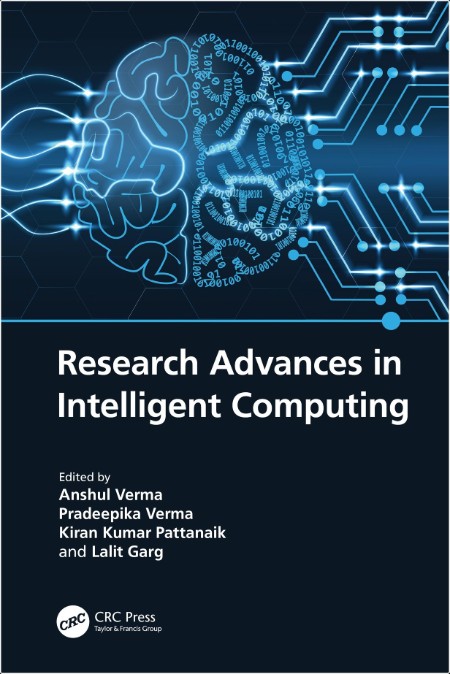
Verma A Research Advances in Intelligent Computing Vol 2 2025 | 51.09 MB
331 Pages
Title: Research Advances in Intelligent Computing
Author: Anshul Verma
Description:
As the computers and other machines have been developed, researchers and scientists have worked very hard to increase their capacity to carry out a variety of jobs. Thus, computers’ capabilities in terms of varied working areas, adaptable duties, processing speed, and smaller size are all increasing exponentially every day. We are currently competing to develop machines or computers that are as intelligent as people. Making a computer or piece of software think like a smart human being is what artificial intelligence (AI) is all about. AI is influenced by the study of the human brain, namely how people make decisions, learn, and respond when attempting to solve any problems. The findings of this study serve as the foundation for creating intelligent systems and software, or intelligent computing (IC). An IC system is capable of learning, reasoning, solving problems, perceiving, and using language. AI and other cutting-edge approaches that provide a system intelligence are used in IC systems. Virtually every branch of computer science has seen the use of intelligent computing, including networking, software engineering, gaming, natural language processing, computer vision, image processing, data science, robotics, expert systems, and security. Today, IC is also used to resolve a variety of complicated problems in many different fields, including disease prediction in medicine, crop productivity prediction in agriculture science, market growth prediction in economics, weather forecasting, etc. For all of these reasons, this book provides the most recent developments in AI as well as IC. In this perspective, the book contains the most recent research on machine learning, neural networks, deep learning, evolutionary algorithms, genetic algorithms, swarm intelligence, fuzzy systems, and other related topics.
As the computers and other machines have been developed, researchers and scientists have worked very hard to increase their capacity to carry out a variety of jobs. Thus, computers’ capabilities in terms of varied working areas, adaptable duties, processing speed, and smaller size are all increasing exponentially every day. We are currently competing to develop machines or computers that are as intelligent as people. Making a computer or piece of software think like a smart human being is what artificial intelligence (AI) is all about. AI is influenced by the study of the human brain, namely how people make decisions, learn, and respond when attempting to solve any problems. The findings of this study serve as the foundation for creating intelligent systems and software, or intelligent computing (IC). An IC system is capable of learning, reasoning, solving problems, perceiving, and using language. AI and other cutting-edge approaches that provide a system intelligence are used in IC systems. Virtually every branch of computer science has seen the use of intelligent computing, including networking, software engineering, gaming, natural language processing, computer vision, image processing, data science, robotics, expert systems, and security. Today, IC is also used to resolve a variety of complicated problems in many different fields, including disease prediction in medicine, crop productivity prediction in agriculture science, market growth prediction in economics, weather forecasting, etc. For all of these reasons, this book provides the most recent developments in AI as well as IC. In this perspective, the book contains the most recent research on machine learning, neural networks, deep learning, evolutionary algorithms, genetic algorithms, swarm intelligence, fuzzy systems, and other related topics.
DOWNLOAD:
rapidgator.net/file/50d8d2091327e63db1324f3442d40314/Verma_A._Research_Advances_in_Intelligent_Computing_Vol_2_2025.rar
k2s.cc/file/9350d29e64938/Verma_A._Research_Advances_in_Intelligent_Computing_Vol_2_2025.rar

